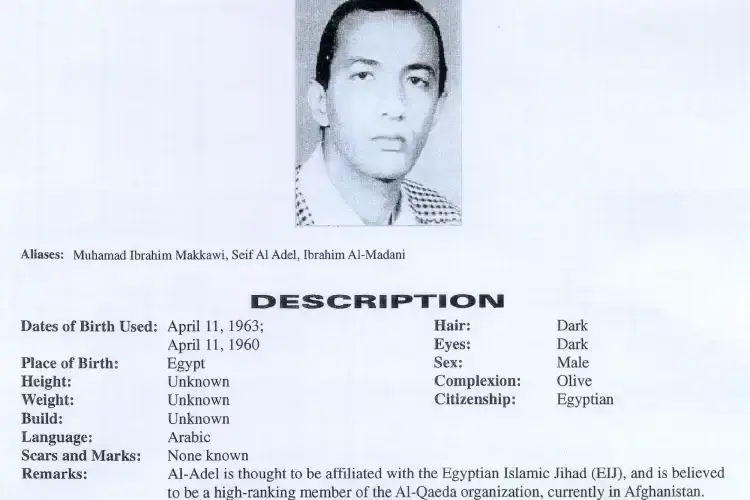The man likely to become al Qaeda's next leader has spent decades using Iran as a base of operations and maintains deep ties to the hardline regime, signaling that two of the globe's leading terrorist forces could exponentially expand relations in the near future.
Saif al-Adel, al Qaeda's number two leader and longtime head of its security arm, fled to Iran in the early 2000s, along with other senior leaders, following the September 11 attacks. From there, he helped relay orders from the just-killed al Qaeda leader Ayman al-Zawahiri and orchestrate terrorist operations that killed dozens of people, including Americans, according to former U.S. officials and information on the Iran-al Qaeda axis published by a watchdog group.
Iran's Islamic Revolutionary Guard Corps (IRGC) protected al-Adel during his time in the country, and the regime permitted him to plan deadly terror attacks, including a May 2003 operation in Saudi Arabia that killed eight Americans. "Adel's suspected presence in Iran has raised further questions regarding Iranian influence on al Qaeda if Adel were to be named leader," according to United Against Nuclear Iran (UANI), an advocacy group that closely tracks Iran's regional terror operations.
These ties have only deepened since President Joe Biden's bungled withdrawal from Afghanistan that left the Taliban in power and the country in shambles. Senior leaders in Iran's Quds Force, an elite IRGC branch, remain in close contact with al Qaeda leaders, "and since the fall of Afghanistan, have provided some al Qaeda leaders with travel documents and safe haven," according to a European intelligence analysis. The Iran-al Qaeda alliance, former U.S. officials told the Free Beacon, has quietly grown for many years, making the prospect of a new nuclear deal with Iran—which will provide Tehran with billions in cash—beneficial for its allies in al Qaeda.









